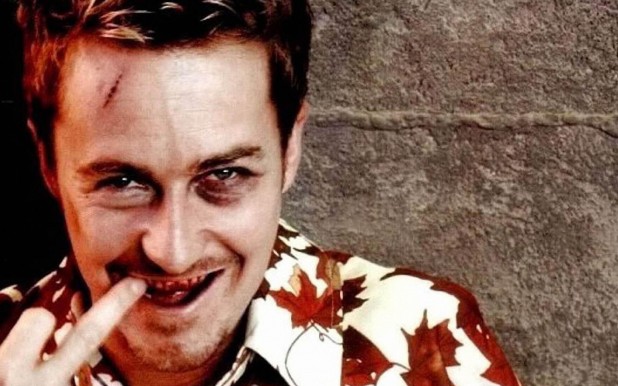Andrew Anglin
Daily Stormer
July 25, 2015

This whole “get the White man” agenda has gone completely off the rails.
I’m going to repost, in full, the “Open Letter to White People” published on Huffington Post and written by Rev. Dr. John C. Dorhauer (@johncdorhauer), who a doctorate in White Privilege and is the recipient of Shalom Award for peace commitments.
And then I’m not going to comment on it.
Maybe I’ll comment on it later. But right now, I just want to let it sink in that this is where we now are.
Dear White Men,
You are persons of privilege.
You didn’t earn it. More than likely aren’t yet prepared to either admit to it or lose it. This letter, written by one of you, is offered to invite you on a journey of insight, honesty, hard truth and just living.
Privilege can be hard to see, mostly because of what doesn’t happen to us when we have it.
One of the four reasons James Cone offers in his landmark essay “Theology’s Great Sin: Silence in the Face of White Supremacy” for why men of privilege remain silent in the face of so much racial injustice is: “They don’t have to speak.”
We aren’t getting arrested at four times our population rate.
We aren’t being followed when walking through a department store wearing a sweat shirt with a hood.
Real estate agencies didn’t write codes, rules and laws that kept us out of the high rent districts and middle class neighborhoods.
Property values don’t go down when more than 10 percent of our neighborhood is saturated with people of our race.
Our children aren’t sitting in classrooms with teachers who are likely not to have even a minor degree in the courses they are teaching.
Young white men are not being gunned down by black police officers in epidemic numbers.
Our churches aren’t being burned to the ground, nor or our church members in danger of being gunned down in prayer meetings.
We are not saying to ourselves as part of a white man’s code of conduct that when a police car drives by us without pulling us over even though we are exceeding the speed limit something like: “Well, once again I didn’t get pulled over because I’m white.”
We are not saying to ourselves when our child didn’t get her college application rejected with a questionable GPA something like: “Well, thank God she’s white and that her mother graduated from that school 25 years ago.”
We are not saying to ourselves when the prosecutor reduces our son’s charges from aggravated assault to loitering and sets him free with a small fine and time served: “Wow, that white prosecutor made sure my white son got a break that the black man who got convicted of that crime last week didn’t get.”
The journey to seeing and understanding the pernicious consequences of privilege includes the harder work of seeing what isn’t there to be seen.
I have started practicing this as a discipline.
When I walk into a convenience store to get a receipt for my gas and the young woman at the counter greets me with a smile and a kind word, I tell myself “She felt comfortable doing that because I’m white.”
When I see a highway patrolman pass me by while I’m exceeding the speed limit or, as actually happened two weeks ago, I get pulled over for that and let off without a ticket, I say to myself: “That happened because I’m white.”
When I drive through the many border checkpoints we have set up here in the Southwest along the Mexican border, and as I roll down my window and make my stop at the guard gate, and as the border patrol agent simply glances at my face before waging me on with a perfunctory “have a good day,” I say to myself: “That is the result of my being white.”
I don’t know in the end if any of those were in fact true statements. That isn’t the point of this exercise. The point is to create a consciousness from which I can no longer let myself escape.
I want to be clear about something. This solves nothing. I can notice, and still be happy and content with the privilege I am afforded.
I want to be clear about something else. Whatever solutions are going to come that we ourselves will offer the agency of our privilege for aren’t coming without this basic awareness.
When I taught White Privilege studies to a class of Masters of Divinity students at Eden Theological Seminary, the assignment I left the students with every day was this: “Tell me what you see.” There is a passage in my sacred texts that reads: “Let those who have eyes to see, see.” There is so much more to be seen than what white men will let there eyes take notice of.
I invite the white men of America with me on this journey of discovery. Ask those who don’t share your privilege to tell you what they see. It may not have escaped your attention that whether we are talking about Trayvon Martin, Tamir Rice, Michael Brown, what whites see and what blacks see are not the same thing. There is a reason for that. Privilege comes at a price — and the price is the loss of a vision that admits facts that make accepting the privilege uncomfortable.
Therefore, I extend an invitation to a seeing that engenders the kind of discomfort with privilege that creates the space necessary for real justice to emerge. Don’t worry about carrying the burden of solving this pervasive injustice: for good reason, you and I won’t be entrusted with that work. But only when we see what others are more than happy to show us about ourselves will we be open then to hearing what they have to teach us about what will be required for true equality to emerge.
The acceptance of this invitation, and the resulting years of work it will take us all to open our eyes to that we have been conditioned to ignore for the sake of our privilege, is the first step in the proverbial journey of a thousand miles. White men in America, I invite you to walk this road with me.
